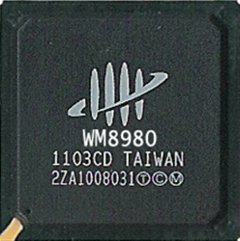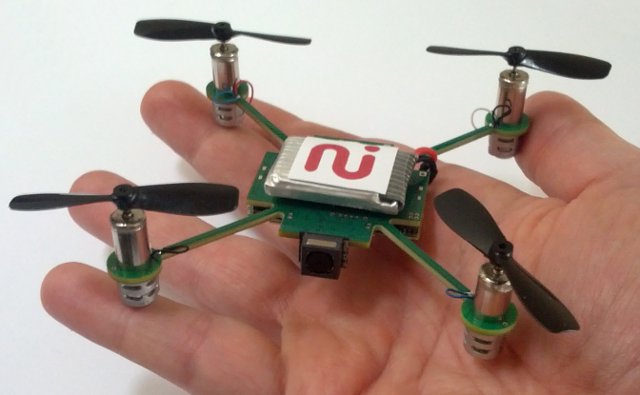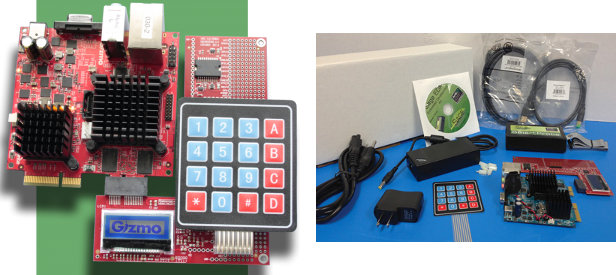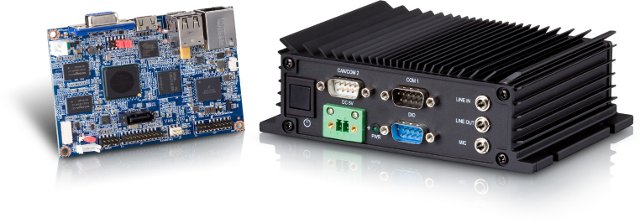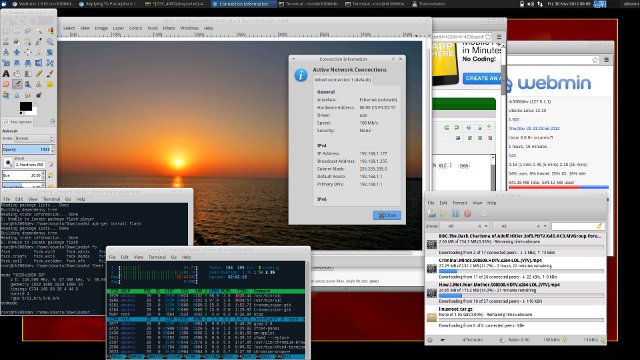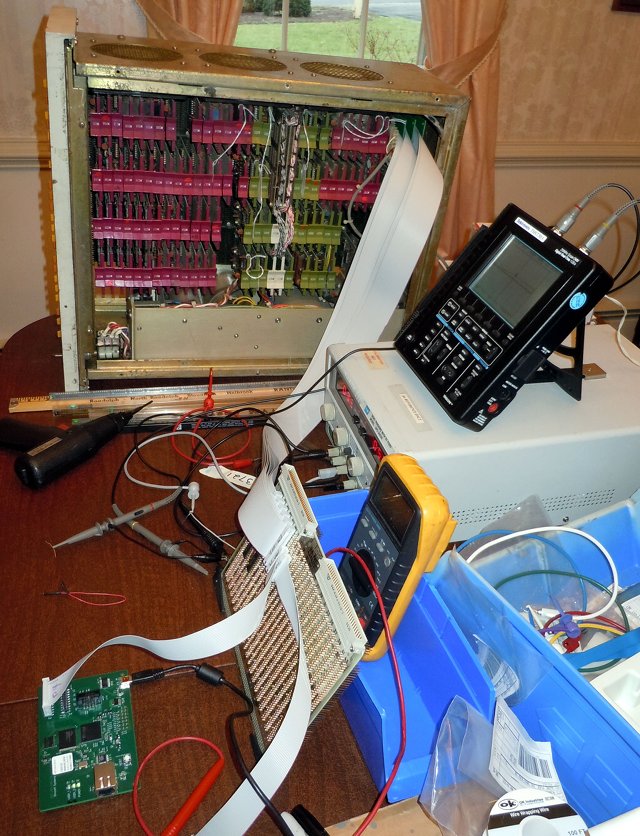WonderMedia Technologies, a subsidiary of Via Technologies, has recently announced the WonderMedia PRIZM WM8950, a dual core Cortex A9 processor running up to 1.2 Ghz with a Mali-400MP2 GPU. This new SoC supports Android 4.2 Jelly Bean, Linux, and WinCE 7, and targets applications for mobile, digital home and business applications in devices such as tablets, smart TVs, networked projectors, digital signage players, and thin clients. It also features integration of the Wi-Fi CERTIFIED Miracast standard into the WonderMedia SmartStream for support of DMR (Digital Media Renderer) and wireless display functionalities over standard compliant and legacy WiFi direct and WiFi devices in both embedded and Android environments. WM8980 supports HDMI, LVDS, and DVO video interfaces, features a CMOS sensor input for webcams, SD / SDIO / MMC / e-MMC interfaces, USB 2.0 Host/device, audio interfaces (I2S, S/PDIF, PCM), SPI, I2C, UARTs and GPIO. Wi-Fi and Bluetooth can be supported with […]
Always Innovating MeCam is a $49 Voice-Controlled Nanocopter Camera
Earlier today, I’ve posted a list of some interesting sessions for the upcoming ELC 2013, and one of the talk entitled “Lessons Learned in Designing a Self-video Self-hovering Nano Copter” by Gregoire Gentil, Always Innovating CEO, caught my attention. In this presentation, he will talk about the technical challenges the company encountered when they designed MeCam, a self video nano copter to point-and-shoot yourself, that should sell for just $49 retail. The MeCam launches from the palm of a hand and hovers instantly. It streams video to an Android or iOS phone or tablet that can be easily shared on social media platforms such as YouTube, Facebook, Google+ and Twitter. There’s no remote control for the MeCam as it’s either controlled by voice commands, or it can be setup to follow you around thanks to the follow-me feature. It can also do panorama shots automatically. The products is still in […]
$199 Gizmo Explorer Kit Powered by AMD G-Series APU is Now Officially Available
Back in November, I came across the Gizmo Explorer Kit, an embedded development platform based on AMD G-Series G-T40E dual core APU that includes the development board itself (Gizmo Board), two expansion I/O boards, Sage SmartProbe JTAG development tool, some accessories such as cables and power supply, and a DVD with the documentation and SDK. Today, Sage Electronic, Texas Multicore Technologies, and Viosoft officially launched GizmoSphere community that aims at “fostering innovation and development for x86-based embedded Accelerated Processing Units (APUs), and driving and enabling technology projects of interest to independent developers with a focus on stimulating and encouraging innovation for existing and new applications that leverage APUs”. To help with this initiative, they also produce the Gizmo Board, and corresponding Gizmo Explorer Kit, a development board that boots with coreboot, and can run a variety of operating systems such as Android, Linux, Windows, and other RTOS. You can refer to […]
Embedded Linux Conference 2013 Schedule
The Embedded Linux Conference (ELC 2013) will take place on February 20 – 22, 2013 at Park 55 Hotel in San Francisco, California. ELC consists of 3 days of presentations, tutorials and sessions. There will be over 50 sessions during those 3 days. I’ll highlight a few sessions that I find particularly interesting, and that did not get presented at ELCE 2012 (AFAICR). February 20 11:00 – Anatomy of the arm-soc git tree by Olof Johansson, Google We are now two years into the new maintainer model for ARM platforms, and we have settled down into a workflow that maintainers have adjusted well to. Still, when new platforms arrive, or when maintainer ship changes hands, there’s sometimes a bit of ramp-up in getting used to how we organize our git tree and how we prefer to see code submitted to fit that model. This presentation will give an overview of […]
VIA ARMOS-800 Embedded System Features a Freescale i.MX537 based Pico-ITX Board
VIA Technologies has recently announced the VIA ARMOS-800, an fanless system designed around VIA VAB-800 Pico-ITX board powered by Freescale i.MX537 processor. The VIA ARMOS-800 provides a ruggedized low-power system for industrial and in-vehicle applications such as a digital signage. Here are VIA ARMOS-800 specifications: Processor – 800MHz Freescale Cortex-A8 single core i.MX537 System Memory – 1GB DDR3-800 SDRAM using 128M x16 memory devices Storage – 4GB onboard eMMC Flash memory + ob-board micro SD connector Graphics – Supports two integrated graphics processing units: an OpenGL ES 2.0 3D graphics accelerator and an OpenVGTM 1.1 2D graphics accelerator Video Output – VGA and HDMI Audio I/O – Line-In, Line-out, Mic-in connectors Connectivity: Ethernet – 10/100 PHY transceiver (SMSC LAN8720A) Wi-Fi – Optional VIA 802.11n Wireless module VNT 9271 USB – 3x USB connectors + 1x on-board USB 2.0 pin header COM – 1x D-Sub 9-pin female connector CAN – […]
LTSI 3.4 is Now Available for Download
Nearly 2 years ago, the Linux Foundation’s Consumer Electronics (CE) working group created the Long Term Support Initiative (LTSI) Linux kernel for consumer electronics devices in order to have a common stable platform released every 2 years, and share the kernel development work among competing companies including Hitachi, LG Electronics, NEC, Panasonic, Qualcomm Atheros, Renesas Electronics Corporation, Samsung Electronics, Sony and Toshiba. Last week, the CE working group has released LTSI 3.4 kernel, based on Linux 3.4.25 kernel release and including several backported features from newer kernels including: The Contiguous Memory Allocator (CMA), which is extremely useful for embedded devices that have very limited hardware resources and will better handle the large memory requirements of multimedia applications. CMA originally was merged into the 3.4.0 kernel release, but its functionality was quite limited. Since then, the feature has been significantly improved in the kernel.org releases and those fixes have been added to […]
PicUntu – Rockchip RK3066 Linux Distribution for mini PCs (UG802, MK808, …)
Many people are using RK3066 mini PCs because they currently offer the best performance to cost ratio, but until now they were mainly limited to Android Jelly Bean, although there was some preliminary port of Ubuntu available for the devices. Now, this preliminary port has become a specific Linux distribution for Rockchip RK3066 PCs-on-a-stick called PicUntu, which is based on Ubuntu 12.10, and can optionally support Xfce or Gnome desktop environments. This distribution is known to work on UG802 and MK808, but should also work on some other RK3066 mini PCs such as iMito MX1. The latest version is Picuntu 0.9 RC 2.2, and features such as WiFi, Ethernet, HDMI audio, USB webcam are known to work, What you won’t get, however, is hardware video decoding and GPU support since Rockchip does not provide the relevant binary files for Linux, but this does not seem to stop the developers from […]
Posibus Peripheral Emulator Powered by Emcraft SmartFusion (Cortex M3 + FPGA) Solutions
According to Wikipedia, Digital Equipment Corporation (DEC) PDP-8 was the first successful commercial minicomputer, and was introduced in March 1965. Mike Thompson, working at Rhode Island Computer Museum (RICM), has restored a PDP-8/L system that was sold between 1968 through 1971. The system can be expanded with 4K of core, a paper tape reader (PR8/L), and/or a punch (PP8/L) controller. But the tape reader is not available anymore, so Mike decided to designe a Posibus peripheral (Tape Reader) emulator using a board with an FPGA + micro-controller. The easiest way to perform this task was to get an SoC that comes with an MCU and a FPGA to avoid having to create an FPGA <-> MCU interface. This is why he chose Emcraft Linux SmartFusion Evaluation Kit featuring a Microsemi Smartfusion cSOC with a Cortex M3 core and an embedded FPGA. The whole setup is shown below. Three FlipChip interface boards […]


